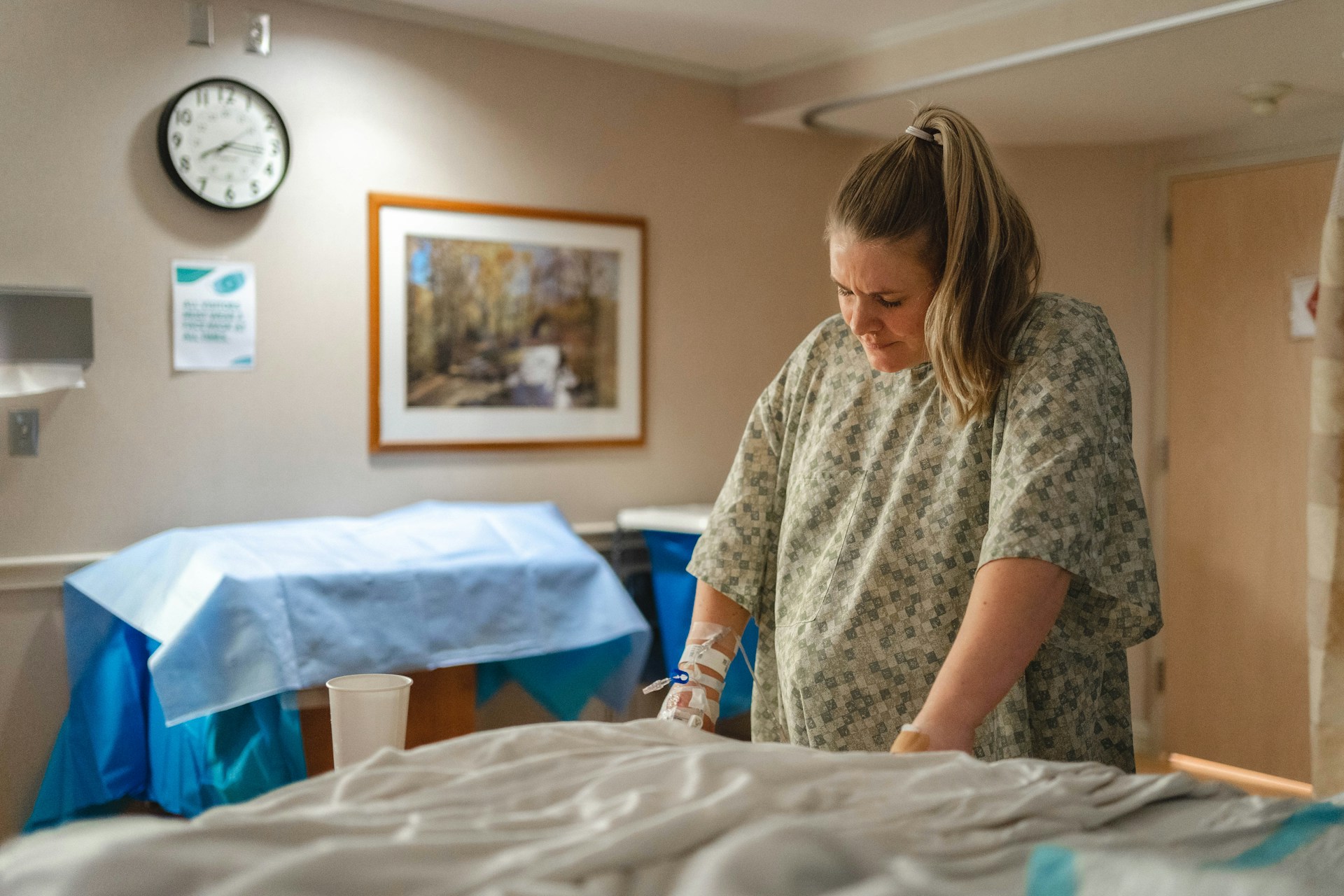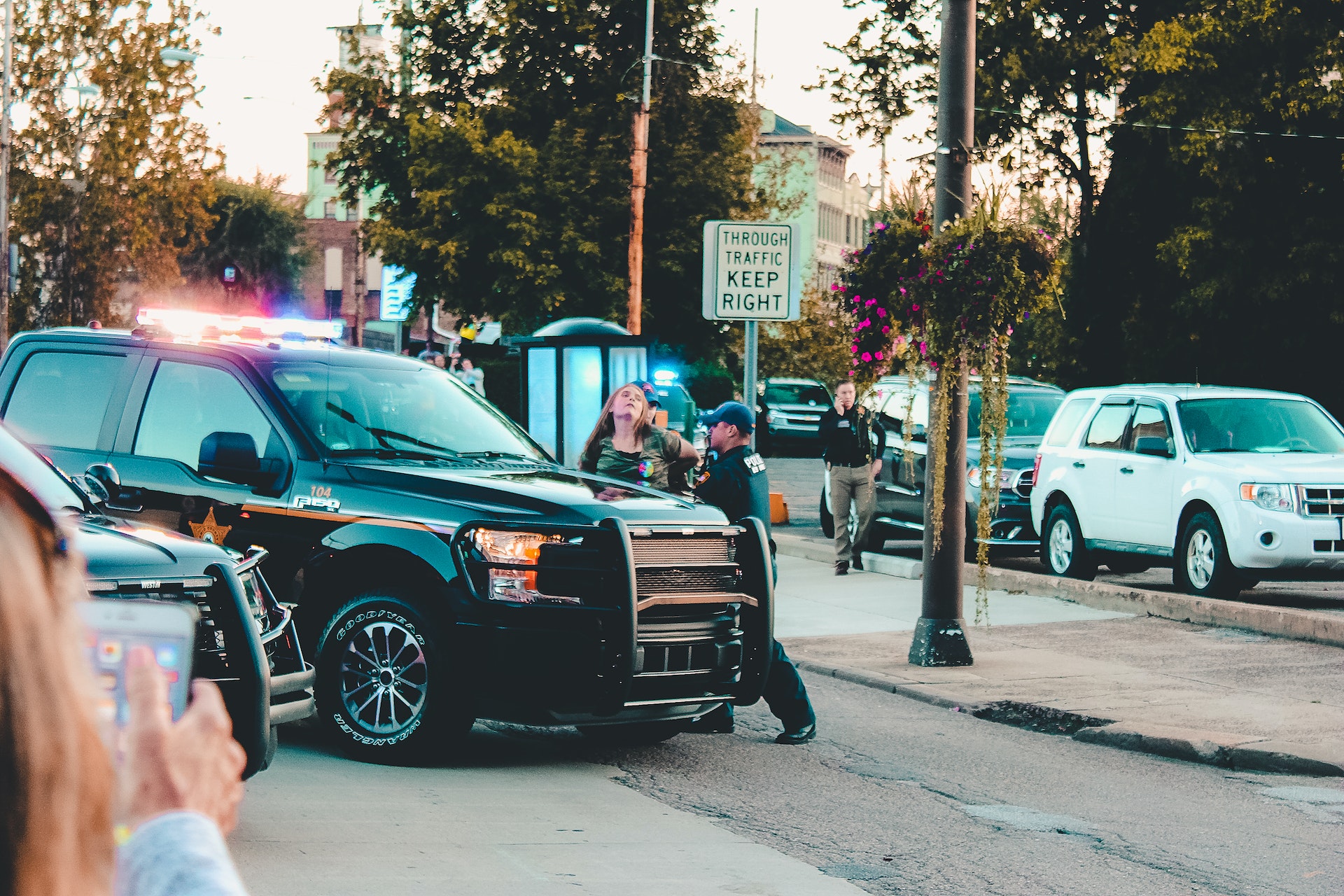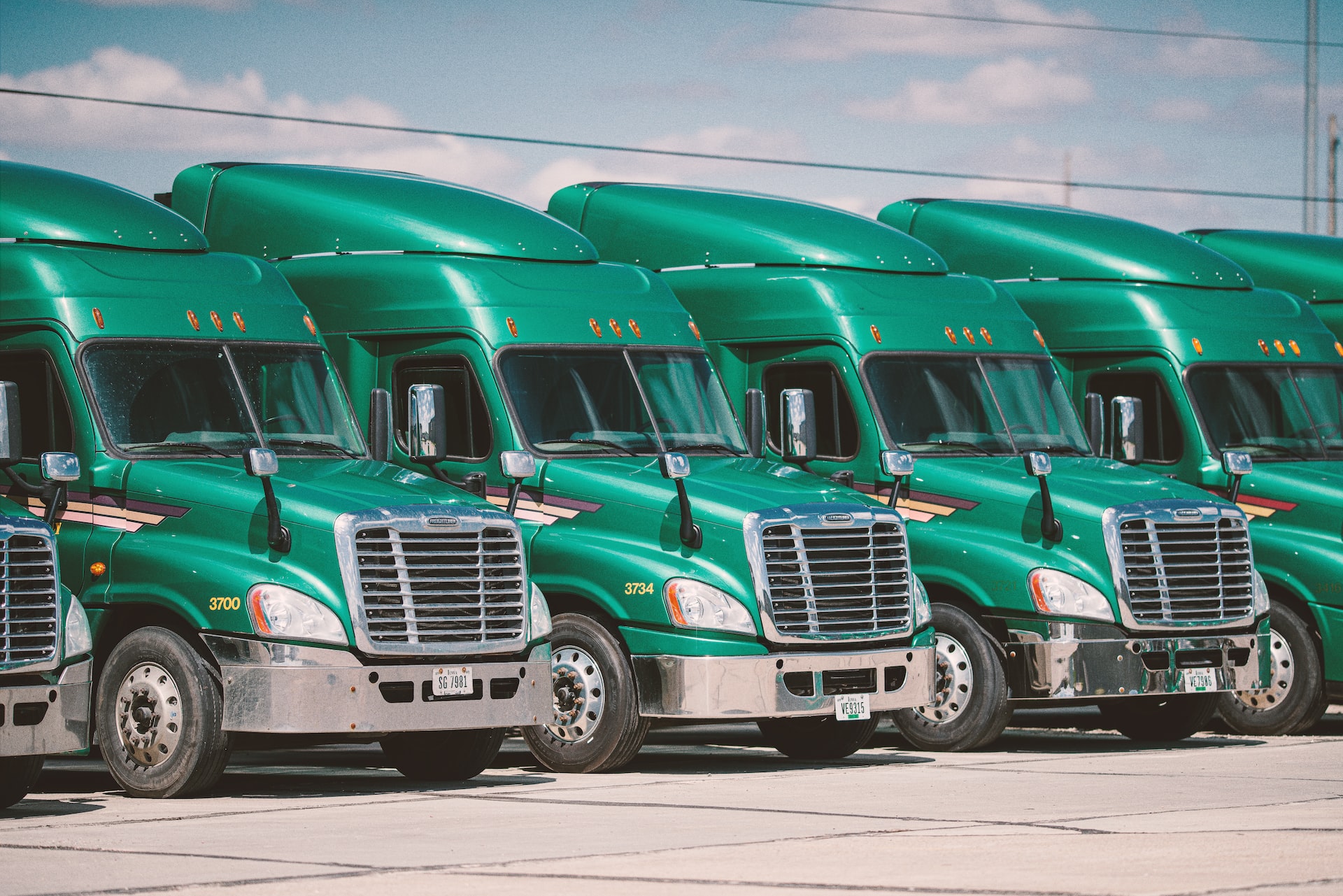How Do I Know if I Have a Personal Injury Case?
If you have been injured as the result of the negligence of another person or entity, liability and the damages are the two main ways to establish if you have a case. In order to file a personal injury claim in Pennsylvania, the plaintiff must be able to prove that the defendant is liable for the injuries and if so what are the nature and the extent of the damages the plaintiff has as result of the subject incident. If these two elements can be proven you may have a case and we recommend you contact a personal injury lawyer to discuss it.
How Do I Pick the Right Personal Injury Attorney for My Case?
When choosing a personal injury lawyer, it’s important to ask the right questions to make sure you find someone who is experienced, qualified, and a good fit for your needs. Here are 10 questions you might want to consider asking during your consultation:
- What is your experience handling personal injury cases?
- What percentage of your practice is devoted to my type of case, and how many cases like mine have you handled in the past?
- What is your success rate in settling or winning personal injury cases, and what types of settlements or verdicts have you obtained for clients with similar injuries to mine?
- How do you communicate with your clients and keep them informed about their case?
- What fees do you charge, and how are they structured? Do you work on a contingency fee basis, which means you only get paid if you win the case, or do you charge hourly or flat rates?
- Who will be handling my case, and will it be you or someone else in your firm?
- How long do you anticipate my case will take to resolve, and what steps will you take to move it forward as quickly as possible?
- Can you provide me with references or testimonials from previous clients?
- Will you be able to negotiate with the insurance company on my behalf, or do you anticipate taking my case to trial?
- What is your approach to settlement negotiations, and how do you balance the need to reach a fair settlement with the need to protect my interests?
What Damages are Subject to Compensation in a PA Personal Injury Case?
While every case is different, the most common damages claimed in a Pennsylvania personal injury lawsuit are the pain and suffering endured as a result of the injury, the loss of wages related to the injury and medical expenses (current and future).
How is the Pain and Suffering Compensated in a Personal Injury Claim in Pennsylvania?
Pain and suffering are non-economic damages sustained by the negligence of the defendant. Under PA Law the amount that can be recovered for pain and suffering varies greatly from case to case. If your case is settled out of court, your attorney will negotiate with the defendant the amount of the compensation for pain and suffering. The value of your case depends on many factors including the liability of the negligent defendant, the severity and permanency of your injury and the loss of income as a result of the injury. In evaluating your case your attorney will compare monetary awards in similar cases. If your case goes to trial, the jury will decide what amount will be awarded for pain and suffering. Your attorney will present expert testimony by among others, physicians, economists and life care planners. Each case is of course different and the experts retained by your attorney will depend on the facts of the particular case.
How Much Does a Consultation With a PA Personal Injury Attorney Cost?
A consultation with a personal injury lawyer to discuss a potential case is usually free as personal injury lawyers usually handle cases on a contingent fee basis. It means that a personal injury lawyer doesn’t charge by consultation but will take a percentage on the amount recovered if they pursue a case on behalf of you or your loved ones, usually between 33.33 and 40% depending on the type on lawsuit.
How Can a Personal Injury Lawyer Help?
Throughout the years, our personal injury attorneys have successfully represented individuals and families in Pennsylvania who suffered injury by the negligence or recklessness of others and we understand how devastating and overwhelming it can be to deal with mounting costs and suffering caused by serious personal injury. We retain the very best experts including accident reconstructionists, biomechanical engineers, medical doctors, forensic pathologists, economists and other experts from the various disciplines involved in the case because every personal injury case requires the plaintiff to prove both liability and damages. Each case has its own set of associated costs, including pain and suffering, lost wages, the cost of care and many other monetary costs and these must be clearly demonstrated. Our trial lawyers will document and preserve any evidence necessary to prove your case and meticulously prepare your case for trial.
How Can Social Media Affect Your Personal Injury Case?
Social media can have a devastating effect on the outcome of your case. Anything that you post on social media while your case is ongoing can be used against you by the defense attorney. We always ask our clients not to discuss their case on social media and avoid posting pictures of their activities while their cases are ongoing. You should also be mindful of what your family and friends are saying or posting about you on social media.

MATTHEW J. PERRY
Partner
If you find this content valuable, please share with colleagues and friends on your favorite channel below:
When Do I Need an Attorney for a Car Accident Claim?
Here are some factors to consider when deciding whether you need an attorney for a car accident claim.
How serious are your injuries? How long did it take you (or will it take you) to recover?
First, it’s important to remember that every case is unique, and so are the ways people define a “significant” loss or “high” costs. What is a devastating loss to one person may not be to another.
To give a general idea, if you had (or have) a serious injury that:
- Affected you for a long time
- Required a visit to a doctor or other healthcare professional
- Caused you to be hospitalized
- Caused you to miss work or school
- Resulted in a lost income
- Resulted in extensive medical bills
- May be long-term (lasting about a year or more) or permanently disabling
… you may have a significant claim and should at least consult with an attorney. Even if you ultimately decide not to hire, a consultation can help you understand your options.
The more you have at stake, the better it is to have an attorney’s help. Insurance companies have attorneys of their own, with the goal of reducing settlement amounts or denying claims. The higher the amount of the claim, the harder the insurance companies and their attorneys fight.
For claims involving long-term or permanently disabling injuries, you really need an attorney. Such injuries can affect not only your quality of life, but your livelihood and ability to work. You may incur future medical expenses related to your injury and complications may develop. Proving these types of injuries is complex and challenging, and should be handled by an experienced personal injury attorney.
Is fault contested in your accident? Is the other driver’s insurance company disputing liability and refusing to pay?
If the other driver caused your accident but they and/or their insurance company won’t admit it, there’s immediate cause for concern.
When an insurance company disputes their policyholder’s liability, they are essentially saying that their policyholder is not at fault and they are not responsible for paying your damages.
This happens because it may not be clear who was at fault. A police report may inaccurately describe the accident. There may be discrepancies among witnesses. Or, the insurance company may simply believe that you don’t have enough evidence that their policyholder was at fault.
When fault is contested, you must prove that the other driver caused the accident or you will lose the claim. An accident attorney can help you provide evidence and prove the other driver was at fault.
Are you concerned the settlement offer you received from the insurance company is too low?
It’s no secret that early settlement offers from insurance companies can be low. Many people accept them, even if they have misgivings, just to move on because they don’t like the hassle of dealing with long drawn out insurance claims. However, it’s often worth taking a deeper look, especially if you might have a large claim.
An attorney can review your settlement offer to determine if it is fair. If it is not, they can negotiate with the insurance company in an effort to raise the settlement amount. In the event an acceptable agreement can’t be reached or the insurance company refuses to negotiate, an attorney can file a lawsuit on your behalf.
Is your case going to court?
If you have to take your case to court, and small claims court isn’t an option, you’ll want to have an attorney in your corner.
While small claims court has simplified rules that make it easy for individuals to present their claims without a lawyer, litigation involves formal court rules, protocol and technical rules of evidence. An attorney understands these rules and can make sure you’re represented fairly.
Other times to contact an attorney:
- A death occurred as a result of the accident
- Pedestrians were involved
- The accident happened in a construction zone
- You or the other driver doesn’t have insurance
- Your insurance company claims that you hadn’t paid your premium, but you had
- You’re at fault or partly at fault, and you’re concerned your liability insurance won’t cover the damages
- Your insurance company starts acting cagey and non-communicative
- Your insurance company gets its own attorneys involved
When in doubt, call an attorney.
Many accident attorneys provide free consultations, and you’re not under any obligation to hire them. This can be a way to see if you may have a personal injury claim, or if there are potential red flags in your case. When it comes to car accident claims, it’s always better to err on the side of caution.

MATTHEW J. PERRY
Partner
If you find this content valuable, please share with colleagues and friends on your favorite channel below:
PENNSYLVANIA BIRTH INJURY ATTORNEY
At O’Malley & Perry Law, each Scranton Pennsylvania birth injury attorney and expert medical consultant on our team pride themselves on helping families uncover whether medical errors were responsible for their child’s devastating birth injuries. Improper prenatal care and negligent medical professionals can cause errors during the delivery process leading to birth defects such as Cerebral palsy, Erb’s palsy, and many additional forms of birth defect.
Furthermore, if a doctor or nurse or other treatment provider fails to recognize fetal distress or responds too slowly, your child could suffer lifelong and irreversible disabilities. Our Scranton – Wilkes – Barre birth injury lawyers and medical consultants have experience in handling and understanding these extremely complex medical issues.
WHAT IS BIRTH-RELATED MEDICAL MALPRACTICE?
Birth related injuries and/or issue are not always the result of malpractice. There are instances where a child’s condition is the result of genetics, such as a chromosomal disorder; however, far too often these life-altering conditions are the result from medical errors during the birthing process. For example, significant injuries can occur when the doctor or nurse fails to read (or inaccurately reads) the fetal monitor strips. If the strips indicate fetal distress, then the doctor must act immediately, otherwise, the fetus could be deprived of its vital oxygen supply. As a result of this delay, the baby can sustain brain damage that could have been avoided.
DELIVERY ERRORS THAT MAY CAUSE BIRTH INJURIES
- Failure to monitor fetal strips
- Misread fetal strips
- Improper use of forceps or vacuum
- Failure to perform a cesarean section
WHY CHOOSE O’MALLEY & PERRY FOR BIRTH INJURY CASES?
- Free Consultations Available – Call us any time(570) – 348 – 3711;
- Attorney Michael P. Perry has won millions for clients;
- No matter the details the Attorneys at O’Malley & Perry gives victims and their families undivided attention.
WHAT ARE THE MOST COMMON BIRTH INJURIES?
The most common injuries resulting from an error during the delivery process are Cerebral palsy, Erb’s Palsy, and Brachial Plexus Palsy. While physical therapy or speech therapy can help improve a child’s development, the impact of Cerebral palsy and other birth injuries are typically permanent. If your child sustained an injury during birth and you suspect medical negligence, speak with a qualified birth injury attorney and our staff at O’Malley & Perry Law as soon as possible. Schedule a free consultation with O’Malley & Perry Law, so that our attorneys and expert medical consultants can give you options and will not charge a fee unless we win.
HOW DOES A BIRTH INJURY OCCUR?
The brain is the primary center for regulating and coordinating all body activities. Essential to the regulation and coordination of these body activities is the transmission to the brain of oxygen obtained through air inhaled and exhaled during the act of respiration. Traumatic birth injury is a broad description which is used to describe both avoidable and unavoidable mechanical and anoxic trauma to the brain of an infant during labor and delivery.
- Anoxic trauma: involves a situation in which there is diminished oxygen in the arterial blood supply despite the infant’s otherwise-normal ability to carry oxygen. The diminished oxygen in the blood supply may be due to a reduced oxygen supply, respiratory obstruction, or inadequate respiratory movements. This can result in serious conditions, including Cerebral palsy.
- Mechanical trauma: involves some physical act to the body, usually the skull of the infant, which prevents the needed transmission of oxygen to the brain of the infant.
HOW TO PROVE NEGLIGENCE IN BIRTH INJURY CASES?
By reviewing the prenatal and delivery records, we can often establish the doctors were negligent in preventing cerebral palsy and brain damage. We typically review lab results and fetal monitoring strips with the assistance of our expert medical consultants. If a child suffers a period of oxygen deprivation, this can result in fetal distress which, if a doctor doesn’t act quickly, may lead to permanent damage or death.
Trained staff must be available to activate the fetal heart monitor, inspect and analyze the strip continuously and intervene where fetal distress is observed. Cardiac arrhythmia (irregular heartbeat), bradycardia (slow heartbeat), and tachycardia (rapid heartbeat) are all signs of fetal distress.
Meconium, or the fetal feces, can also cause fetal distress. A Pennsylvania birth injury attorney must determine if there is resulting fetal hypoxia which is insufficient oxygen to the tissues. A doctor must always determine if there is an abnormal blood pH. There is a decrease in the blood pH, or acidosis when there is a buildup of acid level in the blood due to the fetus not receiving enough oxygen. There is a long history of linking oxygen deprivation and the pH reading to babies born with brain damage. Too low a pH level will establish fetal distress and in many cases, an immediate C-section should follow.
WHAT IS CEREBRAL PALSY?
Cerebral palsy, or CP, is a medical term used to describe a group of disorders affecting body movement and muscle coordination. Cerebral palsy is caused by damage to the brain during pregnancy, delivery or childhood. This damage interferes with messages from the brain to the body, and from the body to the brain with effects ranging from slight awkwardness of movement or hand control to virtually no muscle control greatly affecting movement and speech. The location of the brain injury influences the effects of the disorder, which can include:
- Mental retardation
- Seizures
- Impairment of speech, hearing or sight
- Abnormal perception and sensation
- Problems in gait and mobility
- Involuntary movement
- Muscle spasm or tightness
HOW DOES CEREBRAL PALSY OCCUR?
Any damage to the developing brain, whether caused by genetic or developmental disorders, injury or disease, may produce Cerebral palsy. Often, medical malpractice plays an unfortunate role in the injury of a fetus during pregnancy or of an infant during delivery. The failed diagnosis of complications during pregnancy resulting in the harm to a baby is one example of medical malpractice. Another common example of malpractice that our Pennsylvania birth injury lawyers have seen is a labor which is allowed to last too long that often results in brain damage, as poor oxygen supply destroys brain tissue. Additional examples of malpractice are how the side effects of anesthetics and analgesics can negatively impact an infant causing brain injuries.
TYPES OF CEREBRAL PALSY
There are four types of Cerebral palsy:
- Spastic cerebral palsy
- Athetoid or dyskinetic cerebral palsy
- Ataxic cerebral palsy
- Mixed cerebral palsy – which combines the three types of cerebral palsy above
WHAT IS BRACHIAL PLEXUS PALSY?
The brachial plexus is a group of nerves that run from the shoulder to the spine. These control muscle movement in the hands, arms, and shoulder. Sometimes, when a doctor is negligent by not providing proper obstetrical care, damage to the nerves can result. These injuries usually occur during the natural delivery of a larger infant. When the baby is too large to pass through the mother’s pelvis, his or her shoulder may become lodged behind the mother’s pubic bone after the head has been delivered. Many times the doctors attempt to continue with a natural delivery, as opposed to a C-section and can stretch the neck excessively causing nerve damage.
THREE TYPES OF BRACHIAL PLEXUS INJURIES:
- Stretch – which varies in degrees of intensity; however, nerves in plexus are often compressed due to swelling or bruising from birth trauma of the shoulder getting caught on the pelvic bone. Stretch injuries will spontaneously recover in 1-2 years of age with 90-100% return of function. Neuroma, which is scar tissue that compresses the nerves, may occur also and surgical intervention is needed to remove it.
- Rupture – nerves are torn at either one or several places in the plexus requiring surgery for the nerves to recover.
- Avulsion (the most severe injury) – nerves are pulled from the spinal cord as evidenced by a totally flaccid extremity, which requires surgery and possibly muscle transfer to gain function. Horner’s syndrome may be present if this is involved.
Call O’Malley & Perry Law for your free consultation today.

MATTHEW J. PERRY
Partner
If you find this content valuable, please share with colleagues and friends on your favorite channel below:
Can You Sue for Food Poisoning?
According to the Center for Disease Control and Prevention (“CDC”) about 48 million people each year become sick as a result of food poisoning. That’s one out of every six Americans!
A total of 128,000 people are hospitalized due to their foodborne illness, and 3,000 people pass away after becoming sick. See article at https://wwwnc.cdc.gov/eid/article/19/3/11-1866_article.
Food Poisoning: What is it?
Food poisoning refers to a foodborne illness that you develop after consuming contaminated food.
Some common examples of food poisoning include:
- Campylobacter
- Botulism
- E. coli
- Hepatitis A
- Listeria
- Norovirus
- Salmonella
Food poisoning can cause various symptoms including vomiting, diarrhea, dehydration, infection, fever, difficulty swallowing, muscle weakness, abdominal pain and difficulty breathing.
Although uncommon, in severe cases, food poisoning can be deadly.
How Does Food Poisoning Occur?
Food poisoning or foodborne illness occurs when food is contaminated by bacteria that contaminates your food and make you sick when you consume it.
There are many potential causes of this contamination that can result in food poisoning including:
- Cross contamination, which means organisms are transferred from one surface to another. If a restaurant sets lettuce for salad on a spot where raw meat was placed moments ago without properly cleaning the area, cross contamination can occur.
- Failure to cook food to a sufficiently high temperature to kill bacteria and other infectious organisms
- Failure of employees to wash hands before preparing food (very common)
- Storing food improperly
Can You Sue for Food Poisoning?
The answer is: Yes. You may pursue a claim against an entity responsible for serving or selling you contaminated food. Much like any other lawsuit you need to make sure you have evidence to prove your case.
You have the option to settle your food poisoning claim out of court as an alternative to suing. This could be the best choice if you are offered a fair amount of compensation for the damages you endured. If you settle, you avoid the time and uncertainty involved in a trial.
Proving Your Case in a Food Poisoning Claim
You must prove the following in order to ensure success in your food poisoning lawsuit:
- The restaurant or facility had a duty to you
- They failed to fulfill that duty
- You suffered harm as a direct result of that failure
- You should be compensated for that harm
Proving Negligence in Food Poisoning Claims
A restaurant that prepares sells or serves food can be held liable for its own failures or for the negligent failures of employees on-the-job.
That’s because restaurants and other companies are responsible for the on-duty actions of employees–even if the facility is not negligent itself. A legal doctrine called vicarious liability says employees act on behalf of their employers while performing job duties, so employers can be held accountable for their careless acts or omissions.
Some examples of situations where a restaurant could be found negligent include:
- The restaurant or facility failed to establish policies for the safe handling of food
- The restaurant or facility failed to maintain safe temperatures or conditions for the storage of perishable food
- Restaurant or facility employees behaved more carelessly than a hypothetical reasonable person would in preparing, storing, handling or serving food. For example, a failure to wash hands after using the bathroom or not cooking food to a high enough temperature
- A restaurant or its employees violated federal or state safety and health codes
An experienced food poisoning lawyer can provide you with assistance in gathering evidence and proving a claim arising out of food poisoning.
Other Legal Arguments in Food Poisoning Claims
You may also be able to make a food poisoning claim under products liability laws.
- If you make a product liability claim, strict liability rules may apply. This means you do not have to show negligence to win your case. You win a food poisoning lawsuit if you demonstrate the restaurant or facility sold food that was contaminated or defective in some way that caused harm when the food was used as intended.
Compensation for Food Poisoning
You are entitled to compensation for all losses endured as a result of developing food poisoning. This includes:
- Medical bills
- Lost wages
- Pain and suffering
- Emotional distress
If a food poisoning incident is fatal, the estate of the deceased or surviving family members can make a claim for wrongful death damages. An experienced food injury lawyer like those at O’Malley & Perry Law can help you to prove your case and maximize the compensation you deserve.

MATTHEW J. PERRY
Partner
If you find this content valuable, please share with colleagues and friends on your favorite channel below:
Texting-While-Driving in Pennsylvania
Texting while driving has become a prevalent distracted driving issue across the United States so much so that Pennsylvania and many other states have passed laws that prohibit any driver from using an Interactive Wireless Communication Device (IWCD) to send, read or write a text-based communication while their car or truck is in motion.
What objects are considered Interactive Wireless Communication Device (IWCD)?
- According to Pennsylvania Law and Penn DOT, a “IWCD” is a cell phone, personal digital assistant, smartphone, portable or mobile computer or similar devices that can be used for texting, instant messaging, emailing or browsing the Internet.
What is a text based communication under the law?
- Defines a text-based communication as a text message, instant message, email or other written communication composed or received on an IWCD.
What are the penalties for a violation of the aforementioned law?
The penalty is a summary offense with a $50 fine, plus court costs and other fees.
The violation carries no points as a penalty and will not be recorded on the driver record for noncommercial drivers. It will be recorded on commercial drivers’ records as a non-sanction violation.
Other facts about texting while driving in Pennsylvania:
According to Pennsylvania law, the texting ban does NOT include the use of a GPS device, a system or device that is physically or electronically integrated into the vehicle, or a communications device that is affixed to a mass transit vehicle, bus or school bus. The law does not authorize the seizure of an IWCD.
Background
According to Penn DOT articles and statistics, In 2018, there were 14,202 distracted driver crashes in Pennsylvania, resulting in 65 fatalities.
Numerous studies indicate that texting drivers typically have their eyes diverted from the road longer than any other distraction. Banning drivers from using a cell phone for texting while operating their car or truck should make Pennsylvania roads a safer place to travel.
According to PennDOT articles citing the Governors Highway Safety Association:
- Handheld Cellphone Use: 21 states, D.C., Puerto Rico, Guam and the U.S. Virgin Islands prohibit all drivers from using handheld cellphones while driving. All are primary enforcement laws — an officer may cite a driver for using a handheld cellphone without any other traffic offense taking place.
- All Cellphone Use: No state bans all cellphone use for all drivers, but 39 states and D.C. ban all cellphone use by novice drivers, and 20 states and D.C. prohibit it for school bus drivers.
- Text Messaging: Washington was the first state to pass a texting ban in 2007. Currently, 48 states, D.C., Puerto Rico, Guam and the U.S. Virgin Islands ban text messaging for all drivers. All but three have primary enforcement. Of the two states without an all-driver texting ban, one prohibits text messaging by novice drivers.

MATTHEW J. PERRY
Partner
If you find this content valuable, please share with colleagues and friends on your favorite channel below:
14 Common Causes of Truck Accidents in Pennsylvania
Truck traffic on Pennsylvania roads appears to be at an all-time high. As citizens of this Commonwealth we understand that commercial trucks play a vital role in the economy of Northeastern Pennsylvania, as well as across the United States. However, it is imperative that truck drivers and trucking companies follow strict safety rules to ensure that they do not cause accidents while driving on the roads in our Commonwealth.
Trucking accidents can occur on highways, inner-city roads, and in rural areas. Because large trucks can take some time to come to a stop, it is easy to see how a small car can be crushed during a collision. Here are some of the most common truck accident causes on Pennsylvania roads.
1. Driver Error:
According to the Federal Motor Carrier Safety Administration (FMCSA), driver error is the most common cause of truck accidents. Some of the common truck driver errors include:
- Failing to check the blind spot for other vehicles when changing lanes
- Making sudden changes, like abruptly changing lanes, braking, or stopping
- Tailgating
- Not obeying traffic signs
- Not paying attention to the road
- Distracted from driving due to eating, texting, or talking on the phone
- Driving while exhausted or from lack of sleep
Even though truck drivers have many rules, such as how long they should drive on a single shift or how many hours they can drive in a week, some still drive beyond the set limits. Consequently, fatigue and lack of sleep are common, which often result in errors leading to accidents.
2. Speeding:
A major factor in truck accidents causes is going over the speed limit. The key reason why truck drivers speed is that they have to deliver goods on time. In many cases, they are also rewarded for timely deliveries, and, consequently, they frequently speed. Speeding may seem fine on a flat empty highway, but, in most cases, many roads are congested with other traffic. The weather may also be poor, or some sections of the highway may be under repair, and speeding under these circumstances usually leads to accidents.
3. Overtaking (or Passing):
To overtake slower cars, some truckers drive at break-neck speeds, forcing the smaller car off the road, often leading to collisions. Overtaking for truckers is always a risky maneuver. Still, some truckers may attempt passing other vehicles for a variety of reasons, and passing a line of smaller cars while speeding is a common cause of truck accidents.
The tragedy is, in some cases, the driver of the cars will also speed to prevent the trucker driver from re-entering the right lane. This kind of behavior has no place on the roadways as it is senseless and very avoidable. This kind of behavior while driving also makes it dangerous for any oncoming traffic.
4. Fatigue:
Fatigue is a universal complaint among truck drivers. Trucking itself is a hard job: the hours are long, the ride is monotonous, and there are always deadlines to be met. Sleeping in other than your own bed can be a cause of restless sleep, where you never really get rested. Fatigue is usually a common cause of trucking accidents because drivers are slow to react when there is a need to stop suddenly.
Despite poor weather and bad road conditions, fatigued drivers still get on the roads because they need to deliver the goods so that they can receive a bonus. Very rarely does a truck driver think that fatigue will cause an accident.
5. Distracted Driving:
Driving a truck for a living is not a glamorous job, and it can be monotonous. Drivers, therefore, often get distracted for a variety of reasons, including texting, listening to music, daydreaming, eating, drinking, talking to another person on the walkie-talkie or the smartphone, or surfing the internet. Even changing the radio station can lead to a few seconds of distraction, which may prove to be deadly on busy roads.
Today, distracted driving is fast becoming the number one cause of trucking accidents in the USA. These accidents are often very serious and can lead to fatalities. The distracted driver may not comprehend the situation on the road and may be completely oblivious to what’s happening around him, which is, obviously, not what you want or need from a trucker driving on the road.
6. Driving Under the Influence:
Even though it is illegal to drive while under the influence of alcohol, drugs, or marijuana, many truckers continue to do so each year. Even certain prescription drugs can have a profound effect on the brain and can impair the ability to concentrate. Alcohol and many prescription drugs can also affect cognition, impair judgment and coordination can also be impaired, making driving very dangerous.
Each year, impaired drivers cause thousands of accidents all over the nation. Even the use of marijuana is considered illegal when driving a truck as the agent has been shown to impair judgment and concentration.
7. Failing to Secure the Loads
No matter what items the trucker is carrying, the number one rule is that it must be secured. In addition, the load should be evenly distributed across the truck. Failure to distribute the weight can cause an imbalance in the truck, which can topple the truck when turning around sharp corners or during a sudden stop. If the load is not securely fastened, there is a chance that it may loosen and fly off the truck, onto the road, and into the path of other vehicles, causing serious injuries.
8. Half-Filled Liquid Loads:
Trucks frequently transport all types of liquids, like oil, water, kerosene, etc. Sometimes the containers are only half-filled, and this makes driving especially dangerous. The reason is that the half-filled liquid moves around in the tank with such force that it can sway the truck and sometimes even topple it when the truck makes a turn. Further, if the driver suddenly brakes, the fluid can shift the truck’s balance, causing it to collide with other cars on the road.
For example, water trucks traveling to and from gas pads in Susquehanna County that may have been improperly filled makes it more difficult or even impossible for the driver to control the vehicle they are operating.
9. Tailgating:
Truckers are notorious for tailgating slow car drivers. Time and time again, when truckers tailgate, they have very little time to stop their truck if the driver in front slows down or brakes suddenly. When a ten-ton truck rear-ends a passenger car, the damage to the car can be significant, as well as the passengers within the vehicle.
Sometimes the car is completely crushed, and, in almost all cases, the driver and his passengers are seriously injured. Most cars are not capable of withstanding a rear hit sustained from a semi-truck accident.
10. Lack of Training:
The one profession that has a high demand for jobs is the trucking industry. Trucking can be a difficult profession and, therefore, not many people want to enter it. Therefore, it has been said that the trucking industry accepts even borderline candidates with little or no experience. In addition, because of time and money constraints, these new drivers are provided little or no training.
When novice drivers get on the road with semi’s, there is a higher risk for accidents. By law, all new truckers have to put in a certain number of training hours before driving commercial trucks on the highways, but truck owners often do not abide by these rules.
11. Brakes:
Reports from the National Highway Safety Administration indicate that more than a quarter of trucking accidents are a result of brake failure. This is often due to lack of maintenance, faulty inspection, overheating, or condensation of moisture. For decades, the federal government has mandated that truck owners and drivers pay attention to the brakes and get the maintenance done as scheduled.
Unfortunately, because of the nature of the business, taking a truck off the road for maintenance results in loss of income. Profits override the need for safety, and truck owners frequently cut corners, and when accidents occur, they have no one to blame but themselves. Sometimes the braking problem may be the result of a design flaw. Overall, failure to maintain the truck is a common cause of truck accidents.
12. Tires:
Another common cause of truck accidents is poor tires or worn-out tread. Truck drivers are often busy and work long hours and often fail to note the condition of the tires. When the tire treads are worn out, there is a potential risk of bursting or sliding when the brakes are applied. Sudden tire blowouts are known to be the cause of many truck accidents.
13. Road Conditions:
Sometimes the cause of trucking accidents is road conditions. Highways are constantly being repaired, and signs are placed, but truckers often fail to slow down, and this often results in deadly accidents involving road repair individuals. In addition, sometimes the roads are slippery from heavy rains, ice, snow, or spillage of oil, and when trucks speed, the tires lose their grip on the tarmac, resulting in serious collisions.
14. Other Drivers:
Unfortunately, a truck accident can also occur due to the actions of other passenger vehicles on the road. Some of the reasons car drivers cause trucking accidents include the following:
- Driving in the truck’s blind spot
- Changing lanes suddenly when in front of a truck
- Attempting to pass a truck on the right that is making a right turn
- Tailgating a truck
- Braking suddenly when in front of a truck
- Failing to slow down when a truck is attempting to turn, pass, or change lanes
- Passing a speeding truck and being swayed by the air turbulence
- Driving in between two trucks
- Merging slowly on the highway while a truck is approaching fast
- Harassing a truck driver
- Stopping suddenly on the side of the road without signal
Conclusion
The best recommendation that we can make is to let the truck driver pass and maintain a safe distance whenever possible. Slowing down may delay you to your ultimate destination by a few minutes, but it can save your life and the lives of those around you.

MATTHEW J. PERRY
Partner
If you find this content valuable, please share with colleagues and friends on your favorite channel below:
Slip and Fall FAQ: Ice and Other Defects
From a legal perspective there are 2 ways a slip and fall accident can affect you: as the person who was injured or as the property owner where the accident happened. Either way, you surely have questions about your legal rights and obligations. Here are answers to the most frequently asked questions about slip, trip and fall accidents.
A slip and fall accident isn’t really a literal term… it could be a trip and fall, miss and fall… or any kind of variation. Regardless, the law allows an injured person to make a claim against the owner of the property if the owner was negligent and had adequate notice of the defect but failed to fix it.
Generally, these types of personal injury cases fall under premises liability laws, which vary by state.
FAQs
Q: What is negligence?
A: One definition of negligence is when a person fails to take proper care to avoid harm to someone else. There are 4 elements to negligence:
The defendant (property owner) had a duty of care to the plaintiff (injured person).
The duty was breached when the defendant’s action or inaction caused the plaintiff’s injury.
The plaintiff’s injury flows from the breach and/or was caused by the defendant.
Damages: i.e. the injury cost the plaintiff money or physical pain and suffering.
Q: What is premises liability law?
A: The owner of a property can be liable for an injury suffered by another person on the premises. Usually, this relates to a person who has either express or implied consent to be on the property — either a guest or someone who’s there for business purposes. In certain situations a trespasser can recover if they’re injured on someone else’s property as well.
Premises liability is based on whether the accident was foreseeable, which means the average person would’ve anticipated that the accident could happen based on the condition of the property. It also depends on whether the property owner after having notice of the defect made a reasonable effort to keep the property safe and to provide adequate warning if there is a dangerous condition.
Q: I was injured at a family member’s home, but I don’t want to sue them. What should I do to have my costs covered?
A: You don’t have to damage your relationship or feel like you’re costing someone money. Instead, you can sue their insurance company. Every residence or business is required to have insurance for this very reason. Injuries happen, and insurance protects the homeowner or business owner for being responsible for covering the costs.
Q: What if the accident happened on a rental property?
A: In general, the property owner (landlord) is responsible for maintaining the property. However, there might be instances when the renter is negligent (like if they do something that causes a hazardous condition, or if they fail to notify the landlord of danger so that the landlord can repair it).
Premises liability cases against a landlord are often complex. You should consult with an experienced attorney in your area for legal advice about your specific claim.
Q: What are the common causes of a slip and fall accident?
A: Most slip and fall accident injuries are caused by:
- Wet or slippery floors
- Snow or ice on sidewalks, steps, or other walking areas
- Worn or defective conditions on floors (cracked tiles, broken steps, torn carpet, etc.)
- Poor lighting in walking areas
- Unmarked hazards
- Uneven floors or surfaces
- Loose or broken sidewalks
Q: Where do slip and fall accidents occur?
A: A slip and fall accident can happen anywhere but the most common places where these injuries occur are:
- On snow and ice
- On sidewalks
- At work
- On stairs
- In apartment buildings or on someone’s private property
- In retail stores, businesses, and supermarkets
Q: My slip and fall injury was on public property. Can I still sue?
A: Sometimes, yes. If you were injured on property owned by a government agency (city, state, or local municipality), you may still be able to sue for your injuries, but the process might be different.
The main thing to be aware of is that your deadline to file a lawsuit might be shorter, and there might be a few extra steps (like filing a Notice of Claim, for example).
However, there are some states that have sovereign immunity. This concept protects certain government employees and agencies from being sued.
It can be complicated and difficult to know if you’re able to file a lawsuit against a government agency or if you’re prohibited from doing so because of sovereign immunity. If your injury happened on public property, you should contact a lawyer who’s familiar with your state’s laws and processes.
Q: What type of damages can I recover from a slip and fall injury?
A: In a personal injury lawsuit, you can recover damages to cover the costs of your injury and its effects on your life.
Economic damages have specific costs, like medical treatment (including doctor or hospital visits, rehabilitative therapies, prescription medication, assistive devices, and other items) and lost wages if your injury prevented you from returning to your job at the capacity you were in before the accident.
Non-economic damages include pain and suffering or mental anguish, loss of consortium, loss of enjoyment of activities, and possibly punitive damages. Usually, these costs become an issue if the injury is especially severe or life-changing.
Contact the experienced slip and fall attorneys at O’Malley & Perry Law with questions about your fall or any legal questions!

MATTHEW J. PERRY
Partner
If you find this content valuable, please share with colleagues and friends on your favorite channel below:
New PA DUI Laws Become Effective November of 2022
PA House Bill 773 (2022), also known as Deana’s Law,” was approved by the Governor of Pennsylvania Tom Wolf on July 11, 2022 and became 120 days after the approval or November 9, 2022. The update to the DUI law increases penalties and sentences for repeat DUI convictions.
The bill was inspired by Deana Eckman. A five-time drunk driver killed the 45-year-old Pennsylvania resident in 2019 when he drove his pickup truck across a double yellow line and slammed head-on into the car she was riding in. She was riding with her husband who was seriously injured as a result of the crash.
WHAT ARE THE UPDATES?
1) Addition of 2nd Degree Felony for Certain Repeat DUI Offenders
NEW LAW (EFFECTIVE NOVEMBER 9, 2022)
Under the Pennsylvania Criminal Code § 3803(b)(4.1), the new law increases the grading of a DUI from a felony of the third degree to a felony of the second degree (more serious) “if the individual has three or more prior offenses.”
Here is the new law: § 3803(b)(4.1) An individual who violates section 3802(a)(1) [general impairment] where the individual refused testing of breath or chemical testing pursuant to a valid search warrant, court order or any other basis permissible by the Constitution of the United States and the Constitution of Pennsylvania, OR who violates section 3802(c) [related to highest rate of alcohol] OR (d) [related to controlled substances] commits (i) A felony of the third degree if the individual has two prior offenses. (ii) A felony of the second degree if the individual has three or more prior offenses.
In Pennsylvania, a conviction for a felony of the third degree can mean a fine of not less than $2,500 nor exceeding $15,000, or imprisonment not exceeding seven years, or both. A conviction for a felony of the second degree, can mean a fine of not less than $5,000 nor more than $25,000, or imprisonment not exceeding ten years, or both (see §923(a)(8) and (a)(9)).
2) Consecutive Sentences for Repeat Offenders in PA
Sentences imposed for multiple convictions can be “concurrent,” which means that the “clock” for both sentences (e.g., 5 years and 10 years) starts at the same time – they expire simultaneously.
Sentences can also be “consecutive,” which means that the clock for conviction 2 does not start until the clock for conviction 1 has expired – they expire consecutively.
NEW LAW (EFFECTIVE NOVEMBER 9, 2022)
The new law mandates that any newly imposed DUI sentences be imposed consecutively if the individual has two or more prior offenses (with one exception noted below). This addition will be added as § 3804(c.2) under to the existing “Penalties” part of the law.
The new law reads as follows: (c.2) Consecutive sentence.– A sentence imposed upon an individual under this section who has two or more prior offenses shall be served consecutively to any other sentence the individual is serving and to any other sentence being then imposed by the court, except for those with which the offense must merge as a matter of law.
3) Sentencing Enhancement
Additionally, the new law added § 3804(c.3) to the existing “Penalties” part of the law which provides for a sentencing enhancement for a conviction under § 3803(b)(4.1) “where the individual has four or more prior offenses.” This means the possible penalty a judge may impose under these conditions can exceed the normal penalty.
First-degree misdemeanor DUI convictions as well as 3rd and 2nd degree felony DUI convictions require an 18-month license suspension under the new law (under § 3804(e)(2)(ii) – Penalties.)
Truck Accident Lawyers in Scranton
Representing Clients Throughout Pennsylvania
In Pennsylvania trucking companies have a lot at stake. The sheer size of an 18-wheeler will increase the likelihood of serious injuries or fatalities in the event of a crash.
That’s why these firms will immediately dispatch an experienced team of investigators to sift through evidence and extract details most favorable to them. That means finding evidence that could mitigate the fault of the trucker while scouring for comparative fault by other drivers. They know these cases have the potential to cost their company millions.
At O’Malley & Perry Law our experienced truck accident attorneys know well how trucking companies operate, and we know what it takes to beat them. We urge clients – or potential clients – to speak with an injury lawyer as soon as possible after a crash so that we may begin conducting our investigation with your best interest in mind. We are located in Scranton and will travel to you throughout Pennsylvania.
It’s essential that this is done quickly because we aim to gather evidence before it is destroyed. We will thoroughly investigate circumstances of the crash to identify whether there is any negligence on the part of the driver, employer, owner of the tractor, owner of the trailer or the company that contracted to have goods hauled. In many cases, these are all separate entities. With so many competing interests, you must ensure yours are protected.
Some examples of negligence resulting in Pennsylvania trucking accidents are:
- Driver fatigue
- Equipment failure
- Negligent maintenance
- Overloaded truck
- Inattention of driver
- Speeding (often the result of demanding or impossible delivery schedules)
- Breach of federal regulations
- Negligent hiring practices
Our Boston truck accident lawyers recognize other road users are at a major disadvantage when involved in a collision with a large truck. These vehicles can weigh up to 80,000 pounds. Anytime someone is involved in a crash with a big rig, delivery truck, garbage truck or any other large commercial vehicle; results are too often catastrophic.
Pennsylvania Truck Accidents
Fatalities from motor vehicle accidents in Pennsylvania has increased by 70 fatalities between 2019 and 2020. With regard to accidents involving large trucks, the National Highway Traffic Safety Association reports there were 133 Pennsylvania truck accident deaths in 2020.
Truck Accident Deaths Were Most Likely to Occur in Philadelphia County, PA.
Nationally, the Federal Motor Carrier Safety Administration reported the number of truck accidents has spiked by 20 percent. Although large trucks are only responsible for about 3 percent of the total number of injurious crashes, these wrecks are more likely to result in greater harm than those involving smaller vehicles simply because of the sheer size and weight of these vehicles.
It’s not uncommon for these companies to reach out immediately to victims with a low-ball settlement offer, trying to strong-arm them into a deal that will absolve the company of future liability. They are counting on the fact that victims are desperate in those early days to cover medical bills and other expenses. One should never speak to a trucking company representative – let alone sign any paperwork – without the involvement of a personal injury lawyer. In most cases, the amount to which truck accident victims are entitled far exceeds the initial settlement offer.
In addition to covering medical expenses, damages can include:
- Lost Wages
- Diminished earning capacity
- Pain and suffering
- Loss of life enjoyment
- Pain and suffering
- Funeral expenses
- Property damage recovery
In some situations, courts will allow victims of truck accidents to seek punitive damages, which will triple potential awards. Punitive damages are granted in cases where a trucking company’s actions were especially outrageous, and the court deems it necessary not just to compensate the victim, but to punish the wrongdoer. An example would be a company that mocks federal regulations and forces drivers to fudge delivery logs to beat competitors on delivery times. One could make a strong argument that such action was known to cause severe injury or death to other motorists.
Even in cases where trucking accident victims survive, potential injuries and losses noted in 18-wheeler accidents include:
- Traumatic brain injuries
- Spinal cord injuries
- Severed limbs
- Massive internal injuries
- Broken bones
- Permanent scarring
These injuries often require expensive ongoing treatments, including surgery, medication, physical therapy and rehabilitation. Victims often never recover from being the same as they were before. It’s our goal to make sure you receive compensation to which you are entitled to your injuries and losses.
Contact O’Malley & Perry Law today for a free and confidential consultation.
Call (570) 348-3711 – NO FEE UNLESS SUCCESSFUL

MATTHEW J. PERRY
Partner
If you find this content valuable, please share with colleagues and friends on your favorite channel below:
5 Questions You Should Ask Any Pennsylvania Attorney Before You Hire Them to Represent You in Your Car or Truck Accident Case
If you’ve been involved or injured in a car, truck or motorcycle accident, one of the most important decisions you will make in connection with the crash and the aftermath is choosing the right attorney.
Choosing the right lawyer for your situation can result in the loss of thousands of dollars.With regard to motor vehicle collisions it is important to act fast because filing a lawsuit is a time sensitive matter.
Despite this time crunch, you can take your time to make a well-informed decision quickly if you use common sense and ask the right questions of those persons who you are interviewing for the job. While the following questions do not exhaust everything a client may wish to discuss with his or her prospective attorney, it provides a great foundation and will assist most in what can be an overwhelming and stressful process.
1.) Who will actually be handling and “working up” my case?
You should ask exactly who will be handing and working up your case. Additionally, you should request to meet this individual. You deserve to know the experience, qualifications, and position of the specific attorney who will be representing you and/or your family in what may be one of the most important matters of your or their lives.
2.) How long have you practiced law?
As with any job or profession, general experience as an attorney is extremely important.
3.) What types of cases do you handle, and what percentage of your practice is devoted to auto accident injury law?
It is important to know what area(s) of law the attorney practices in. Ask the attorney what types of cases they handle. This is so you know you are dealing with someone who has worked on cases like yours in the past. Ideally, the attorney you hire for your auto accident case focuses his or her practice on primarily on auto accident cases.
4.) Do you have any special training or experience that will benefit my case?
While auto accident injury law does not require specialized training and experience to practice, it is helpful to know if the attorney you are interviewing has any training or experience that may benefit your case. This information could prove vital when trying to decide if one particular attorney is more suited for your matter over another, and, as a result, more likely to obtain a favorable recovery for you.
5.) What is your fee, and what costs do you charge for?
While most auto accident injury attorneys charge on a contingency basis (meaning there is no fee if there is no recovery), and the actual amount of their fee is based upon the value of the claim, not all charge the same rate.
In addition to fees paid to the attorney, most attorneys require that the client bear the “costs” of the case. This can include, among other things, charges by the clerk of court for filing suit, costs of the sheriff for service of pleadings, copy costs, postage, and court reporter fees. It is important to understand what costs you will be responsible for and, more importantly, if you must pay them regardless of the outcome of your case.
In Pennsylvania all lawyers and clients are required to enter into a written fee agreement. Ask you lawyer for the opportunity to review it before your meeting with the attorney for an initial consultation. If you do not obtain a copy before you meet with your prospective attorney for an initial consultation, ask if you can have the opportunity to review it for as long as you need to before signing it.

MATTHEW J. PERRY
Partner
If you find this content valuable, please share with colleagues and friends on your favorite channel below:










